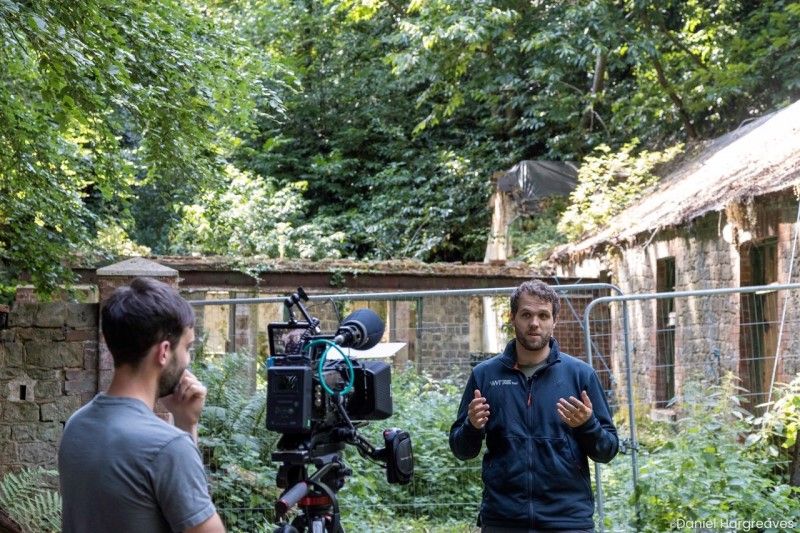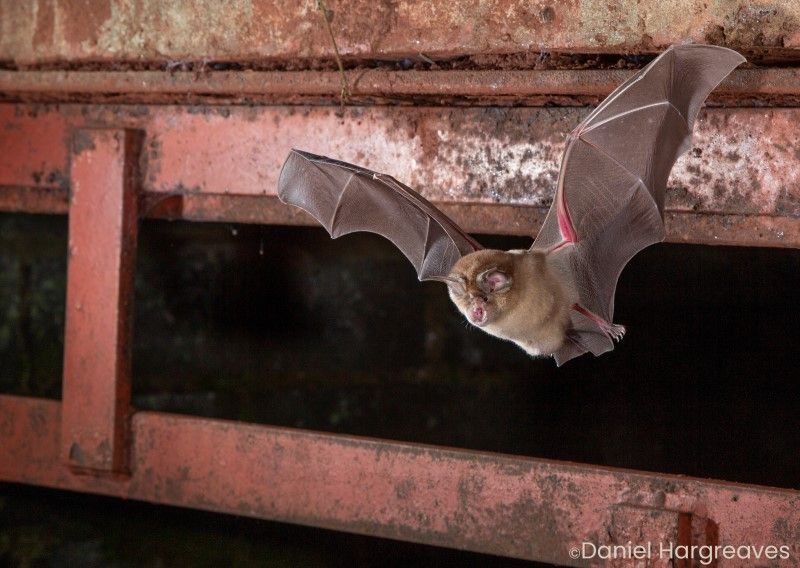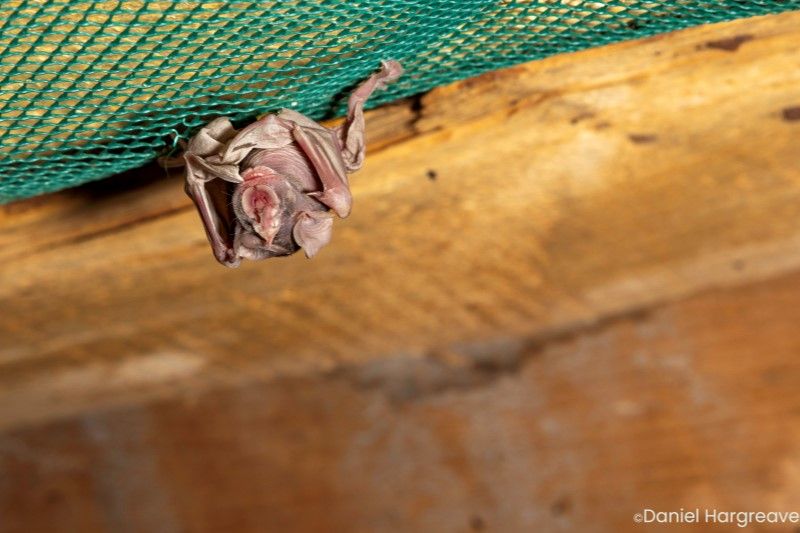Protecting greater
horseshoe bats in Sussex
Thanks to funding from PTES and others, a vital greater horseshoe bat roost has been saved which will help the species gain a foothold in the southeast.
Coming home to roost
Britain’s 13,000 greater horseshoe bats (Rhinolophus ferrumequinum) were, until recently, mainly found in the south and west Wales and southwest England. As their numbers started to recover, individuals and small colonies have been recorded as far away as North Wales and Sussex.
In 1900, the northern limit of their range ran from London to Aberystwyth with numbers estimated to exceed 100,000. But various threats, including changes in agriculture and habitat loss, as well as timber treatments, increase in pesticide use and the conversion of agricultural buildings into private dwellings, meant the population suffered a drastic decline becoming extinct in several counties.
By 1983, we had just 2,200 greater horseshoe bats left. Since then, due partly to increased legal protection and the fact we were able to acquire several key maternity roosts, the core population has grown to around 13,000 bats mainly in south Wales and southwest England.
Thanks to efforts by the Vincent Wildlife Trust and other organisations, the number of greater horseshoe bats is increasing with encouraging sights they they’re reclaiming their former range.
Moving further afield
Excitingly, in 2019, a small colony was discovered roosting in a dilapidated building earmarked for development. Exciting, not just because another roost had been found, but because of where it was.

The site is 100km east from the nearest known breeding population and the first maternity colony found in the southeast for 100 years. A fantastic find. Sussex bat group quickly relayed this significant discovery to Vincent Wildlife Trust and through collaboration and funding from the PTES and others, bought the site, safeguarding the bats’ future.
The purchase was finalised in March, giving the team a small window of opportunity to make some short-term essential repairs before the bats returned to the roost to raise pups.
Working closely with Sussex Bat Group and local volunteers, several work parties cleared the site of decades of accumulated rubbish, patched up holes in the roof and put up signs to deter trespassers. There was an anxious wait to see if the bats would return and breed following the works.
A remarkable return
Thankfully, the bats began to return in May and, by the end of June, we had news of the first pups born on site. This pioneering colony is small but growing and we know from experience that by securing the site, restoring the building, and creating a perfect nursery roost the colony will continue to grow and continue to spread out into former ranges in the southeast.
We’re now waiting for the bats to leave this summer maternity roost, so works can change this dilapidated building into the first greater horseshoe bat reserve in the southeast. In an age of reintroductions and rewilding, this is a remarkable success story – one where the bats are reclaiming lost territory and we’re fully committed to helping them return.
Thank you for helping us fund this research to protect bats in Sussex.
If you’d like to support our work, please donate or set up a direct debit here today.
Header image by Daniel Hargreaves


